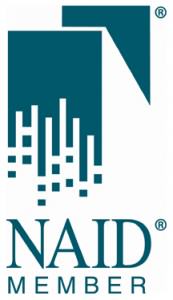
Most modern companies work with data regularly. Unfortunately, it’s pretty easy for a drive to crash or information to become corrupted.
Having both onsite and offsite copies is essential for recovering from data loss. But what information should your company be backing up?
Legal Documents
Businesses rely on legal documents to enforce agreements and avoid liabilities. Protecting assets, limiting risks, and preventing litigations are much easier when you have things in writing. Contracts, non-disclosure agreements, and invoices are just a few of the essential documents businesses use daily.
Because they’re so important, businesses need a robust backup and recovery policy to ensure they don’t lose any vital pieces of information. It’s good practice to have both physical and digital copies to ensure you remain protected from data loss.
Contacts
Another essential piece of information businesses might want to back up is their contacts. Maintaining an up-to-date contact list allows companies to share information, communicate updates, and achieve their shared goals. However, losing your phone numbers, emails, and addresses is easy if you aren’t careful.
While most people these days keep their contact list on their phones or their computers, it’s good to have the information written down where it’s easily accessible. Copying local contact information to a cloud storage database will allow you to recover it if it becomes accidentally deleted or altered.
Intellectual Property
Businesses must also prioritize the protection of their intellectual property (IP) to ensure they stay competitive and relevant in their industry. You must document patents, copyrights, and other trade secrets well to ensure you can have your legal rights enforced. However, this also presents the risk of theft.
It can be tricky to back up your IP if you feel concerned about keeping it private. Most companies rely on third-party hard drive shredding services to adequately dispose of their storage mediums once they no longer need them. Keeping track of any drives, documents, and other forms of information that could put your IP at risk will make it easier to maintain backups without worrying about data theft.
Create Robust Backups You Can Quickly Recover
No matter what type of data you’re backing up, it’s good to have a system you can rely on that won’t let you down during emergencies. You should follow the three-two-one rule, with three backups consisting of two storage mediums and one offsite medium.
Knowing what information your company should be backing up will make it easier to keep track of what goes where, reducing the chances of loss or theft.






